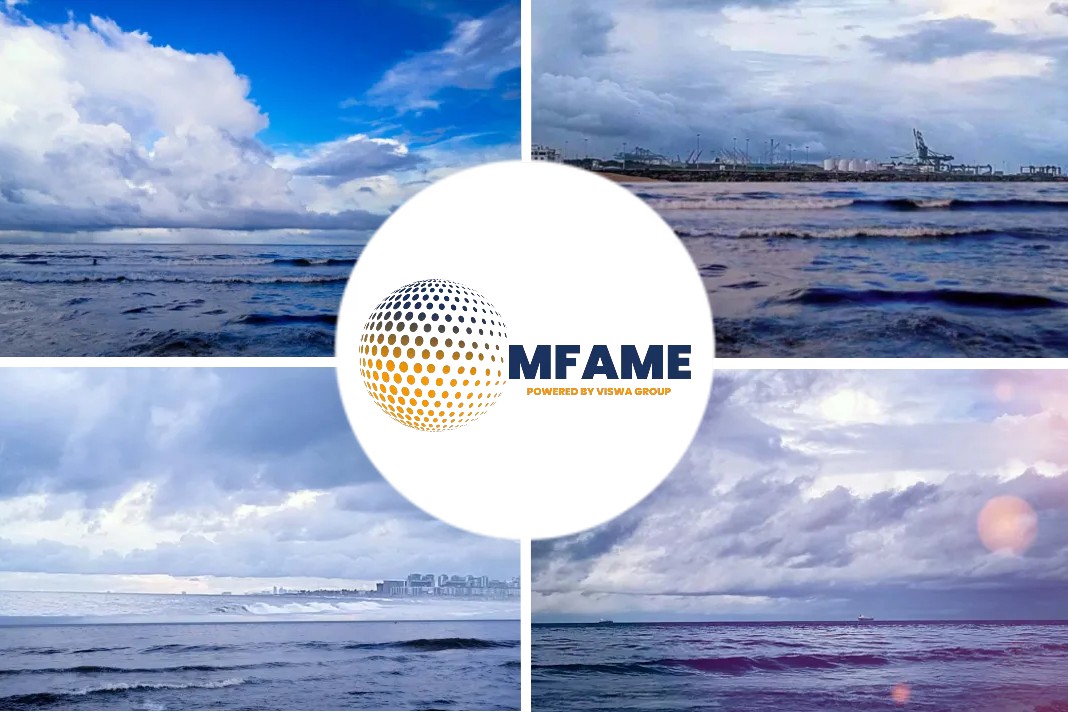- Led by the United States, nations at the International Maritime Organization (IMO) agreed in 2008 to limit sulfur in residual petroleum for ships by 2020.
- Seaborne trade represents between 50-85% of world trade value, with ships delivering >90% of world trade volume with the United States.
- In 2020, price premiums for North American ECA fuels will drop as all ships adopt cleaner marine fuel.
- Nations who are party to IMO agreements have the authority to enforce international standards.
In 2020, we will see the first-ever worldwide shift to a cleaner transportation fuel, when global shipping and fuel providers will complete a 13-year plan to adopt cleaner marine fuels, says James Corbett writing for The Hill.
Led by the United States, nations at the International Maritime Organization (IMO) agreed in 2008 to limit sulfur in residual petroleum for ships. Cleaner ship fuels represent a shared achievement for communities, for shipping and energy sectors, and for the economy. The United States should not lose sight of these benefits.
The Global Trade Winds are Changing
International shipping of global trade is changing. Fleets are modernizing for improved fuel efficiency and cost-competitiveness. Seaborne trade represents between 50 percent and 85 percent of world trade value, with ships delivering more than 90 percent of world trade volume with the United States.
Polluted Low Costs
Advanced internal combustion systems power today’s newest ships, which are equipped with large diesel engines using blended marine fuels that are cheap and dirty left-over byproducts of world refining. These fuels minimize transport costs but increase harmful pollution impacts. Continued vessel performance innovation requires lower polluting clean marine fuels.
Where does the U.S. stand?
America will be first among nations to benefit from cleaner ship fuel markets and pollution reduction benefits. U.S. energy-producing cleaner fuels for ships delivering more sustainable international trade to Americans is a good deal.
America is ready because we are already producing these newer fuels — and ships calling on U.S. ports are using these fuels without harming trade, suggests Corbett. All U.S. ports have required cleaner ship fuels for ocean-going vessels since 2015.
The North American ECA
The U.S. and Canada worked jointly to establish the North American Emissions Control Area (ECA), achieving real protection for their communities. The North American ECA is the largest region mandating the cleanest ship fuels under international treaty.
Advantages of The Shift
In 2020, price premiums for North American ECA fuels will drop as all ships adopt cleaner marine fuel. Clean ship fuels provide health benefits, as they reduce harmful air pollution along coastal shipping lanes and benefit major trading ports. Globally, hundreds of thousands fewer people will die annually from chronic air pollution diseases; millions of children will suffer less pollution-related asthma.
Good Enforcement Necessary
All of these benefits depend on good enforcement. Nations who are party to IMO agreements have the authority to enforce international standards. Competitive and responsible shipping fleets helped set the IMO standards for compliance. Because of cooperation between shippers and regulators in developing these standards, enforcement agencies report very low rates of violation in the North American ECA.
Ignoring clean fuels enforcement would delegate environmental protection to U.S. trading partners without any advantage. Withdrawal from environmental agreements at IMO could relinquish all enforcement and progress forged by U.S. environmental leadership since 1970. Partial withdrawal from the air pollution standards at IMO does more harm than good. The U.S. couldn’t selectively ignore the global fuel standard without also undoing existing North American ECA protections.
The U.S. can best manage its own interests by continuing to lead the implementation of international agreements for cleaner ship fuels. The North American ECA will continue to reduce premature death and childhood respiratory disease for major port cities and communities far inland. U.S. refineries will supply expanding markets during the transition, and energy economics ensures price effects will be temporary. Global trade with the U.S. can grow, ships will deliver more goods and less pollution, and American workers will benefit from U.S. energy dominance with this particular fuel.
About the Author
James Corbett, Ph.D., is a professor at the University of Delaware who focuses on maritime technology, energy, and innovation. He worked on oil tankers in the U.S. Merchant Marines and served in the U.S. Naval Reserve as an engineering duty officer.
Did you subscribe for our daily newsletter?
It’s Free! Click here to Subscribe!
Source: The Hill


















